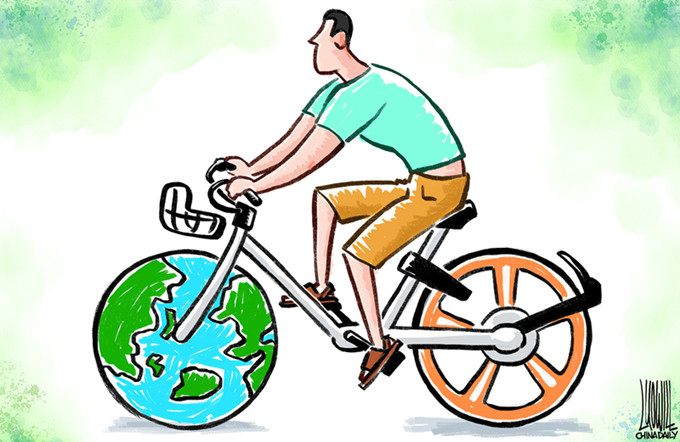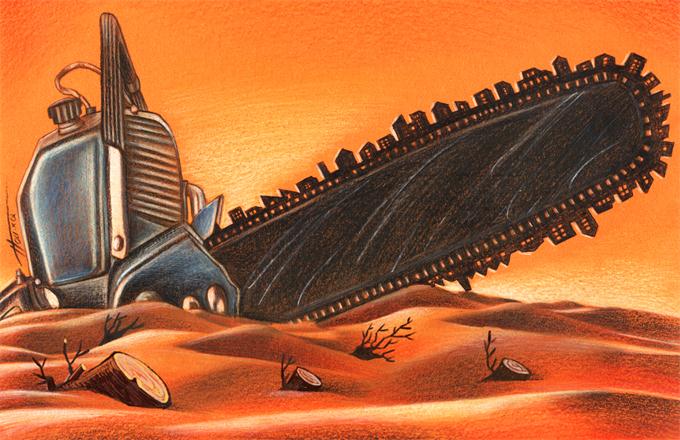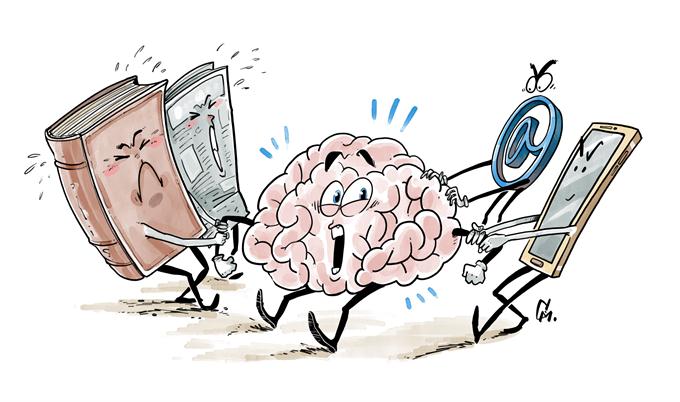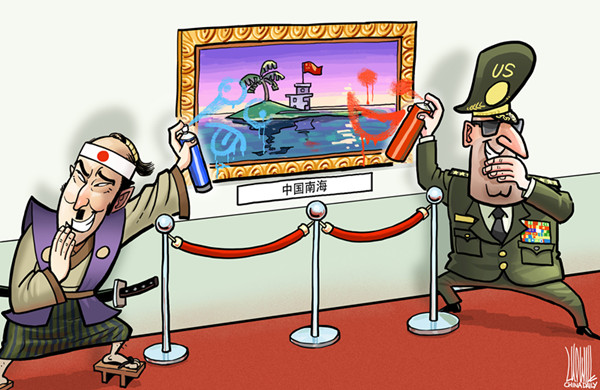What if technology can really make humans immortal
 |
|
Photo provided by Australian National University (ANU) shows ANU co-researcher Kevin Le holding a blue Morpho butterfly and a solar cell at ANU in Canberra, Australia, May 16, 2017. Butterfly wings could be used to inspire new technology in solar cells, said ANU researchers, adding that "filtering" light could be a major feature of future solar projects. [Photo/Xinhua] |
The claim is ridiculous and irrational not just because it is physically impossible for humans to live forever but also because human immortality would be disastrous for mother Earth.
The news, however, also reminded me of what the demons in the Journey to the West try to do to Tang Seng, the Buddhist monk who takes the dangerous journey to ancient India in search of Buddhist scriptures, because they believe his flesh, if eaten, can make them immortal. The demons try every trick to capture Tang and eat his flesh, though without success.
I consider the demons' failure and ultimate destruction as a prophecy that whoever seeks immortality will soon perish.
But what about the "prophecy" of the Google scientist? What if his claim comes true?
To begin with, such technology, in case it becomes reality, would be extremely expensive and most likely beyond the reach of 99.9 percent of the world's population.
This brings us to the reality of 1 percent of the world population owning 99 percent of its wealth, which runs counter to the argument that the advancement of modern science and technology has made global wealth distribution more equal and fair. Still, however unequal the world is in terms of wealth distribution, everyone is still equal in death.
This universal truth has been the only solace for many poverty-stricken people who see no chance of their lives becoming better. And those who have been working to invent the "technology of immortality" are trying to break the balance between life and death and thus deprive the poor of their only worldly comfort.
Against the backdrop of the ever widening gap in the distribution and possession of global wealth, what such scientists are trying to do is not to break a frontier in science but to shatter the very last hope of the majority of the people of seeing their wealthy and powerful counterparts return to dust. Is this not cruelty of the worst kind?
The "technology of immortality", were it ever to be invented, will only make the world an even more unequal and unfair place, as only the wealthiest and most powerful would be able to afford and enjoy the technology. And then the only solace for the poor and powerless would be to believe that even some of the rich and powerful people cannot access the technology owing to its astronomical cost, akin to the failure of the demons in the Journey to the West to lay their hands on the monk.
And for those who still cannot find mental solace, they could seek spiritual comfort in the fact that they will embrace eternal peace in death, while the "immortals" will be left to wallop in their terrestrial troubles and miseries that always precede or follow happiness.
But what if a technology is invented for those "immortals" to travel between this and the nether worlds? One of my friends recently told me that scientists have been working hard on a technology that would enable humans to travel to Mars-something like a modern-day Noah's Ark, which will carry the wealthiest and most powerful people to Mars before our planet falls prey to climate change, for which again the rich and powerful are responsible.
As for me, I'd rather be an ordinary mortal than travel to Mars, even though I have one in a zillion chance of doing so, because the rich and powerful will turn the Red Planet, if it's livable in the first place, into paradise lost which it was originally assumed to be.
The author is a senior writer with China Daily.
zhuyuan@chinadaily.com.cn


















